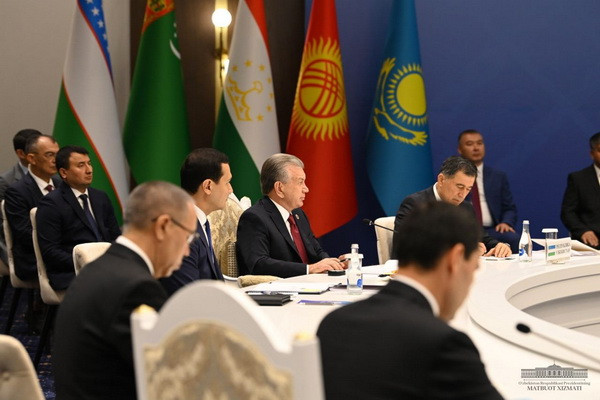
Cultural and humanitarian cooperation as an important factor in regional rapprochement
Tashkent, Uzbekistan (UzDaily.com) -- The Fourth Consultative Meeting of the Heads of States of Central Asia in the city of Cholpon-ata was held in an atmosphere of friendship, mutual respect and professional discussion of urgent issues.
The Presidents of the Central Asian countries reaffirmed their firm intention to comprehensively expand and deepen multilateral interstate cooperation in the interests of ensuring peace, stability and sustainable development in the region.
At this Summit, the parties discussed topical issues on the regional agenda, agreed on upcoming significant events, exchanged views on the implementation of previously reached agreements, while security and the development of economic cooperation became the main topics of the international summit.
Nevertheless, along with political, trade, economic, transport and logistics issues, special attention was paid to the issues of expanding cultural and humanitarian cooperation.
This is logical. According to many researchers, being on the borders of three major civilizations, having a difficult history and a motley ethno-religious composition of the population, Central Asia has always remained a special node of cultural and civilizational ties and ethnogenetic processes. The uniqueness of our region lies in its single historical and cultural space, which has had a tremendous impact on the development of world civilization.
This means that the states of the region have a whole range of cultural and civilizational prerequisites for integration, which can be the basis for regional multilateral cooperation.
As a result, a number of events and projects in the cultural and humanitarian direction are regularly held with the countries of Central Asia at the bilateral and multilateral levels.
Thus, in recent years, the “Days of Turkmen Culture” (2016), “Days of Tajik Culture” (2017), “Days of Culture and Art of the Kyrgyz Republic” (2018), and also “Days of Uzbek Culture” in Turkmenistan (2017) have been widely celebrated in Uzbekistan, in Kyrgyzstan (2017), in Tajikistan (2017, 2019). Moreover, 2018 was declared the “Year of Uzbekistan in Kazakhstan”, and 2019 the “Year of Kazakhstan in Uzbekistan”.
It has become a tradition to organize various forums and festivals dedicated to the preservation and development of the cultural heritage of our region.
For example, the international cultural forum “Central Asia at the crossroads of world civilizations”, held in September 2021 in Khiva, historians, archaeologists, ethnographers and art historians, scientists and cultural figures from different countries met to discuss topical scientific problems related to the preservation of the Central Asian civilization and cooperation between the countries of not only Central Asia, but the whole world.
Within the framework of the international scientific conference "New Uzbekistan and Regional Partnership in Central Asia", organized by the International Institute of Central Asia in October 2021, the leading experts of the region recommended a number of relevant studies in the field of joint study, preservation and representation of the historical and cultural heritage of our countries, issues were discussed further development of humanitarian cooperation between the states of Central Asia.
The President of the Republic of Uzbekistan Shavkat Mirziyoyev noted that the countries of the region have accumulated extensive experience in scientific and cultural interaction, created conditions for active cultural and tourist exchanges, put forward a number of initiatives on the transition of cultural cooperation between the countries of the region to the format of regular and systemic relationships, and the development of a unified policy for the study, preservation and development of the historical and cultural heritage of our ancestors.
This includes a joint, in-depth study of our common history, the Central Asian festivals of art, cinema, national cuisine, Days and Weeks of Culture, and active expansion of regional tourism in our countries.
The leader of our state separately noted the youth policy.
In May of this year, the Central Asian Youth Forum was successfully held in Tashkent.
Once again we were convinced that our youth have similar views and aspirations, a powerful intellectual potential. We must continue to comprehensively support their breakthrough initiatives, creative approaches and start-up projects,” the head of state stressed.
Further holding of youth forums in the countries of the region, support for youth initiatives, creative approaches and start-up projects is an excellent groundwork for the preparation of a multilateral Agreement on General Directions of Youth Policy, which, according to the President of Uzbekistan, can be prepared already for the next Meeting.
These promising proposals, voiced at a high level, confirm that without taking into account the cultural and humanitarian factor, it would not be entirely correct to talk about the degree of success of a particular cooperation project.
Obviously, humanitarian interaction is intended to become an effective mechanism for interstate partnership aimed at expanding and deepening multilateral cooperation between the countries of Central Asia.
Alisher Sabirov
Head of the Department for the Study of Historical and Cultural Heritage and Humanitarian Studies of MICA